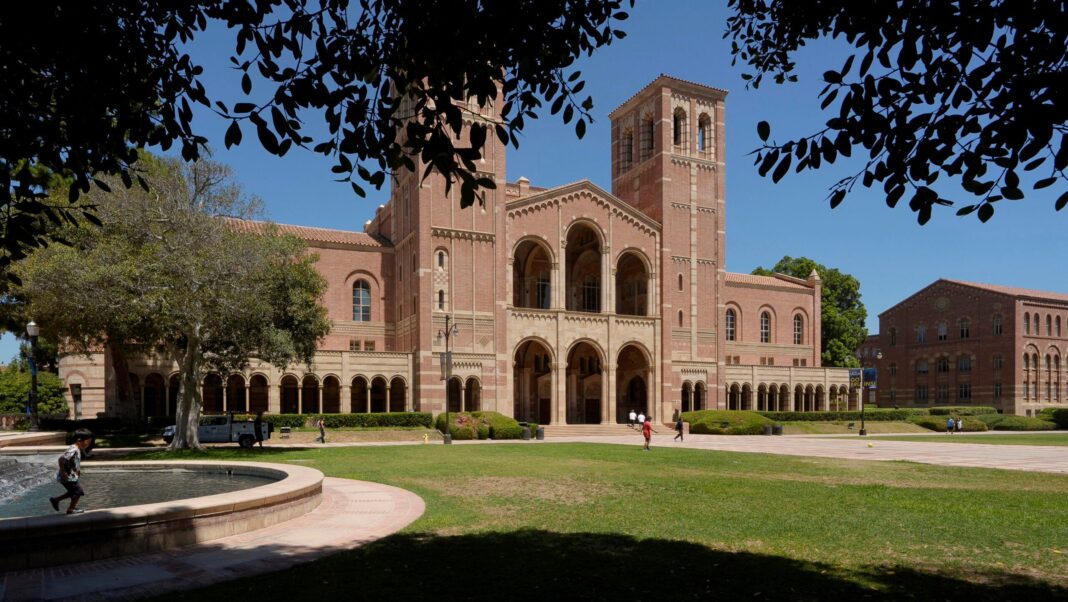### The Legal Battle: Trump Administration vs. University of California
The recent lawsuit filed against the Trump administration by a coalition of faculty, staff, student organizations, and labor unions at the University of California (UC) marks a significant moment in the ongoing debate over academic freedom and civil rights. The faculty’s grievances reflect a perceived overreach by the federal government, aimed at curbing the autonomy of educational institutions and stifling free speech.
### Context of the Lawsuit
Weeks prior to the filing, the Trump administration slapped the University of California, Los Angeles (UCLA) with a staggering $1.2 billion fine, citing allegations of allowing antisemitism and other civil rights violations on campus. This was a watershed moment, as UCLA became the first public university subjected to such a drastic funding freeze. The administration’s aggressive stance doesn’t stop there; similar funding penalties were dished out to elite private colleges, including Harvard and Columbia, suggesting a broader campaign against institutions perceived as harboring liberal ideologies.
### Allegations and Demands
The lawsuit outlines a range of demands made by the Trump administration in their proposed settlement with UCLA. Key stipulations included granting the government access to sensitive faculty, student, and staff data, releasing comprehensive admissions and hiring data, and even banning overnight demonstrations on campus. These demands have raised alarms about invasions of privacy and academic independence, critical tenets of a free educational environment.
### Response from University Officials
Stett Holbrook, a spokesman for the University of California system, emphasized that while the university is not directly involved in the lawsuit, it remains committed to legal and advocacy efforts aimed at restoring and protecting funding. The potential loss of federal funding is particularly alarming; it could undermine critical biomedical research and adversely affect the health of Americans reliant on the university’s innovations in medical science.
### The Coalition Behind the Lawsuit
The coalition spearheading this legal action is led by the American Association of University Professors (AAUP), represented by Democracy Forward—a legal organization known for challenging the Trump administration’s use of frozen federal funds. Their lawsuit underscores a broader concern: that the abrupt termination of federal funding represents an unlawful and substantial threat to the operational autonomy of educational institutions.
### Investigations Across the Educational Spectrum
Beyond the University of California, the Trump administration has expanded its scrutiny to K-12 school districts across the nation. The U.S. Department of Education’s Office for Civil Rights has launched numerous federal investigations targeting various educational institutions for alleged civil rights violations. This extensive reach raises questions about the government’s role in enforcing educational norms and standards.
### A Warning from UC Leadership
University of California President James Milliken expressed profound concern over the federal government’s actions, calling them one of the most serious threats in the university’s 157-year history. With the UC system receiving over $17 billion annually in federal support, including substantial Medicare and Medicaid funding, the implications of a funding freeze could devastate both research and student financial aid.
### Political Motives Underlying Federal Actions
The Trump administration has strategically wielded its influence over federal funding to instigate reforms at colleges that it claims are excessively influenced by liberal ideologies. Investigations into diversity, equity, and inclusion programs have focused on allegations of discrimination against white and Asian American students, suggesting that the administration seeks to reshape the landscape of higher education.
### Settlements as Patterns
This summer, Columbia University agreed to a $200 million settlement with the federal government, resolving allegations of violations of federal antidiscrimination laws. This agreement not only restored over $400 million in research grants but also sets a precedent for how the administration may handle similar cases involving other universities. The implications of these settlements are significant, as they might establish a model for how financial penalties are perceived and enforced across the academic landscape.
### The Wider Impact on Academic Freedom
As more universities face scrutiny and potential penalties, the larger conversation about academic freedom becomes paramount. The current climate raises pressing questions about the balance of power between educational institutions and federal authorities, especially regarding the rights of scholars and students to express diverse viewpoints without fear of retribution or funding cuts.



